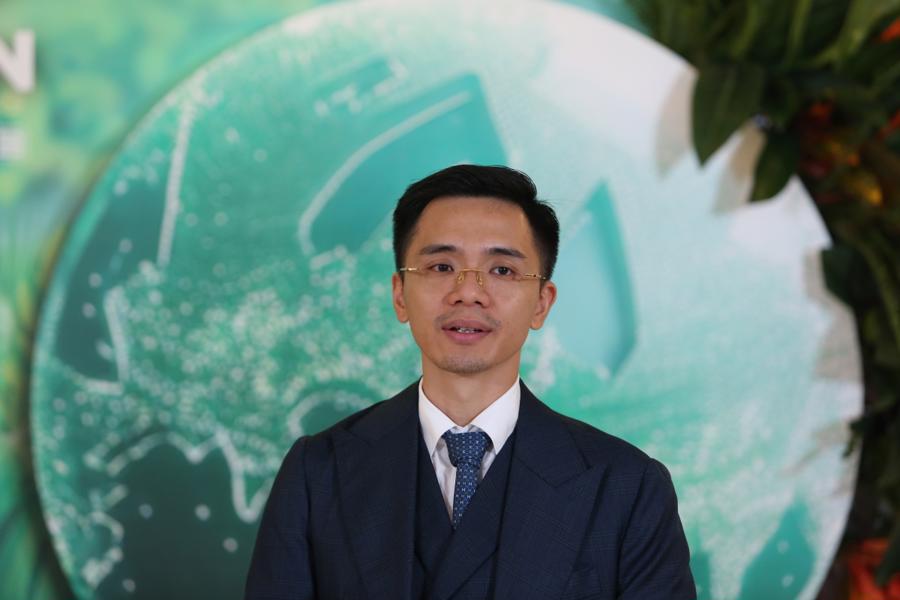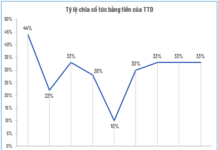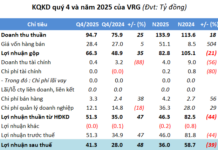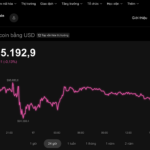Speaking at the workshop “Pioneering Dual Transition for a Greener Vietnam,” held recently in Hanoi, Attorney Vu Minh Tien, a member of the Board of Directors of VIAD Group, shared that many businesses are still unclear about the dual transition, unsure of whether to prioritize digital or green transformation.
“Most of the businesses currently focusing on and driving the dual transition are large enterprises. Meanwhile, given the characteristics of Vietnam’s economy, the majority are small and medium-sized enterprises, and they are not keen on the idea of dual transition. How can we help these businesses overcome the initial hurdles and embrace green and digital transformation? This is an urgent issue,” emphasized Attorney Vu Minh Tien.
CHALLENGES FOR SMALL BUSINESSES
According to Mr. Le Viet Anh, Head of the Science, Education, Natural Resources, and Environment Department (Ministry of Planning and Investment), digital and green transformation are pressing requirements in the current context, as the economy and society face environmental and sustainable development challenges. As a result, Vietnam has adopted the National Green Growth Strategy for 2021–2030, with a vision towards 2050, and the National Strategy on Climate Change until 2050.
The issue of green transition has also been actively integrated and promoted through various strategies, plans, programs, and projects of the nation, and initial positive outcomes have been achieved.
“The industry has witnessed significant changes in modernizing production, enhancing the effective application of science and technology, and restructuring resource and energy-consuming sectors. The proportion of renewable energy in the national power system is higher than that of many other countries,” affirmed Dr. Le Viet Anh.
Regarding the digital transition, although it came after the green transition, it has become a significant trend in the development process of countries worldwide, including Vietnam, especially under the impact of the Covid-19 pandemic. Digital transformation optimizes production and business processes, reduces costs, and enhances competitiveness through automation, data analysis, and efficient information management.
Despite initial achievements, Ms. Do Le Thu Ngoc, Head of Inclusive Development at UNDP Vietnam, pointed out that in a rapidly changing world with constantly emerging issues, businesses will struggle to adapt and will be left behind if they do not transform, transform slowly, or transform ineffectively.
“Large enterprises have far better access, adaptability, and ability to turn strategies into action than small, micro, women-owned enterprises, and cooperatives. This is a concern when 97–98% of Vietnamese businesses are small and medium-sized,” Ms. Ngoc emphasized.
Sharing this view, Mr. Truong Bui, CEO of Roland Berger, stated that the dual transition is a trend pursued by countries worldwide, presenting both pressure and new momentum and opportunities for businesses.
“Dual transition includes energy and digital transformation. Both processes put pressure on businesses, especially small ones with limited resources and personnel,” Mr. Truong Bui stressed.
FINDING A WAY FORWARD
Although there is no one-size-fits-all model for dual transition, according to Mr. Truong Bui, green or digital transformation can be as simple as an initiative or idea to save energy or operate a business more efficiently.
“Dual transition is not about spending billions of dongs on technology or energy solutions. It’s about the mindset, vision, and clear orientation of the business in running its operations efficiently in terms of both economics and energy. This will not only help businesses expand their market reach but also enhance their competitiveness and effectiveness,” said Mr. Truong Bui.

Attorney Vu Minh Tien suggested that to promote the transition of the business sector, especially small and medium-sized enterprises, support policies for businesses need to be implemented more effectively. Additionally, accelerating the development of a carbon credit market is crucial to addressing financial constraints during the transition.
“Many non-governmental organizations, funds, and international banks have started to offer practical financial packages that Vietnam can access. However, we lack the legal framework to evaluate which projects are green and eligible for green credit. To address this, some financial institutions have applied similar standards from other countries for green deposit or bond offerings. But this is only a temporary solution. Vietnam needs a comprehensive and timely legal and policy framework to quickly disburse these funds to businesses,” emphasized Mr. Tien.
According to Mr. Nguyen Dinh Tho, Director of the Institute of Strategy, Policy, Natural Resources, and Environment, Vietnam is part of a “global game,” and Vietnamese businesses must follow global rules to compete and find their place in the market. Currently, EU-listed companies are required to report on sustainable development. Consequently, Vietnamese businesses in the EU supply chain must also comply with these regulations or risk being excluded. While this is a challenge for Vietnamese businesses, it also presents an opportunity to make a “breakthrough” through green transformation.
“If the transition is slow, businesses may miss out on opportunities in the developing market. However, if it’s too fast, they may lose their competitiveness due to high transition costs, which can increase their product prices and make it difficult to compete. But this is only a short-term challenge, as in the long run, EU businesses will have to look for other partners if our businesses cannot meet their requirements,” said Mr. Tho.
“Vietbank’s Endeavor for Capital Increase: A Commitment to Sustainable Growth”
The State Securities Commission (SSC) has confirmed receiving the necessary documents for Vietbank’s (VBB on UPCoM) stock dividend issuance, aiming to boost its charter capital by VND 1,428 billion. With this capital increase, Vietbank’s charter capital will rise to VND 7,139 billion. This crucial step of finalizing the procedures with the SSC empowers Vietbank to strengthen its financial capabilities and lay the groundwork for expanding its nationwide network.
The Government Directs the State Bank of Vietnam to Finalise the Plan for SCB’s Resolution by December
The government has instructed the State Bank of Vietnam to promptly finalize and submit to the competent authority a proposal for the mandatory transfer of the remaining banks under special control. They have also been tasked with finalizing a handling plan for the Saigon Commercial Joint Stock Bank (SCB) by December 2024.
“Digital Illiteracy: The Stumbling Block to Successful Digital Transformation”
A “test-and-learn” or “fail-forward” culture is pivotal for businesses to thrive in today’s dynamic marketplace. This approach fosters an environment where innovation and creativity are nurtured, allowing organizations to stay agile and responsive to market demands. By embracing a culture that encourages calculated risks and treats failures as learning opportunities, businesses can unlock their true potential and gain a competitive edge. This mindset shift empowers employees to challenge conventions, explore new ideas, and drive meaningful change. As a result, organizations can adapt quickly, make informed decisions, and deliver exceptional products and services that meet and exceed customer expectations. Embracing a “test-and-learn” philosophy is a testament to the organization’s commitment to continuous improvement, ensuring they remain resilient and relevant in an ever-changing business landscape.
Samsung Launches BED-H Series: Tailored TV Solutions for SMEs
The Samsung BED-H Series commercial TVs are renowned for their energy efficiency and operational prowess, catering to a diverse range of business needs. From retail stores and cafes to restaurants and complex digital content management systems, these TVs offer a dynamic solution. With their exceptional performance and energy-saving capabilities, the BED-H Series TVs are the perfect choice for any enterprise seeking a seamless blend of functionality and efficiency.
The Digital Revolution: Unlocking the Potential for Vietnam’s Retail Banking Boom
The retail banking sector is becoming a key strategic focus for banks in Vietnam, especially with the country’s economic recovery and the strong trend towards digitization. However, to maximize this potential, banks must navigate competitive challenges, risk management, and technological investment.




















